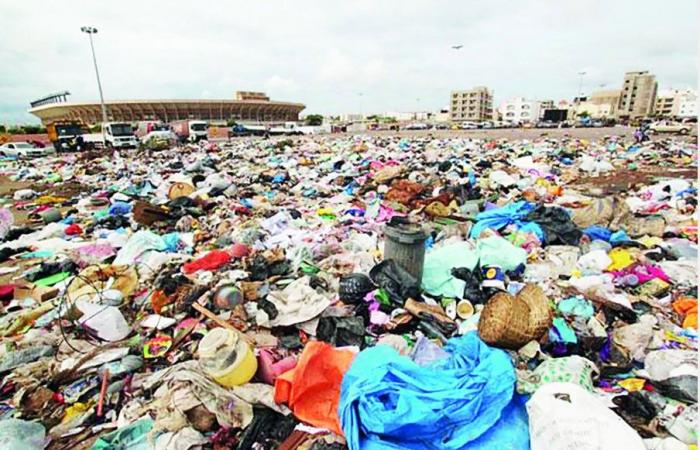The chaos is at its peak around the Léopold Sédar Senghor Stadium. A place transformed into a mechanics garage which poses two problems: a chaotic living environment and growing insecurity. The populations of Grand Médine, a district of the commune of Patte d’Oie, can’t take it anymore.
With an emaciated face, he frantically inhales puffs of joints. The smoke immediately pours out in confused words, barely audible in the cacophony that reigns on the scene. “Jaaman,” as he is known in the neighborhood, is apparently in another world. Bushy dreadlocks, sitting on the ground among abandoned vehicles where oil and blackened sand have become one, he hallucinates with a resounding smile: “God is there for everyone and we will all go to Heaven . Hell does not exist. » His whole body still screams the terror of his miserable life that he spends in this shambles. The surroundings of the Léopold Sédar Senghor Stadium offer a living environment disrupted by the presence of waste of all kinds: rejected or broken down vehicles, presence of rubble, plastics, etc. “This part is too dirty and it’s not doing us any favors. All kinds of waste are dumped there such as garbage, iron and rubble. This anarchy has favored the emergence of bandits in the area,” laments Amadou Kanté, a mechanic in his thirties. Grand Médine, located in the commune of Patte d’Oie, has the form of a shantytown. From the first light of day this Thursday, January 16, 2025, the neighborhood has the trappings of an underworld universe. Excrement from sheep born at the Tabaski fairgrounds is still omnipresent. They are mixed with septic liquids, sewage discharge, rotting meat remains, worm-eaten soil. On the spot, there are dull glances which follow one another. Closed faces on which we read weariness. At first sight, we hold our noses or look away because the environment is uncomfortable. The pile of rubble is now part of the gloomy decor of these accommodations, without comfort or hygiene and mostly devoid of paint. Slums that encourage promiscuity and the presence of bandits. A place that has become a repository for the poor. “Every time we chase them away, they come back. This place is not safe,” regrets Fatou Ndione, manager of a restaurant. His stall is surrounded by a pile of rubbish which swarms due to the lack of public landfills. “This place has become a pound,” points out Arame Seck, a resident of Mixta, another neighborhood with a notorious reputation. A living environment that is conducive to delinquency. “The environment of this place means that we cannot frequent it at certain times. We are calling on the Ministry of the Environment to clean up this area. The town hall is making efforts, but these onlookers always come back. I wonder why the “Set-Setal” (cleaning) operations initiated by the Government have not yet targeted our neighborhood,” laments Seynabou Ka, a housewife washing her residents in front of her house.
Babacar Guèye DIOP






